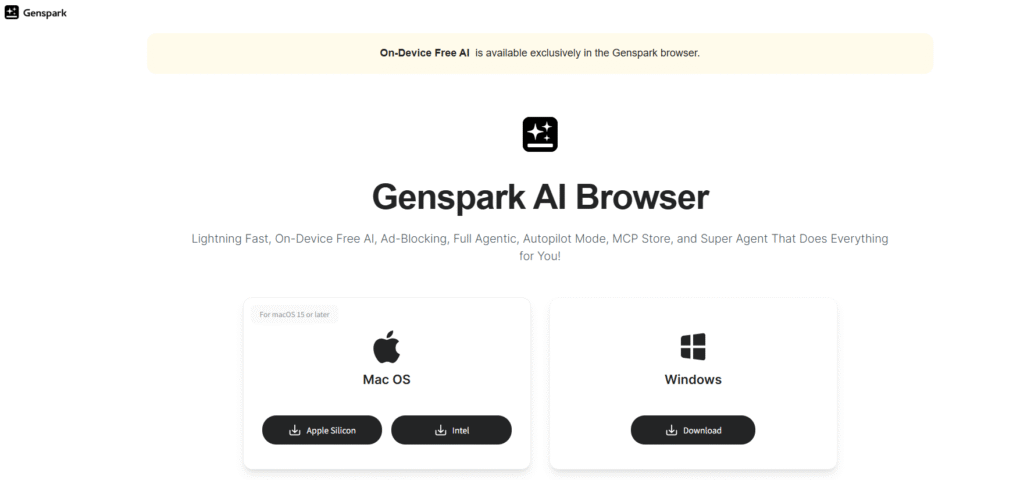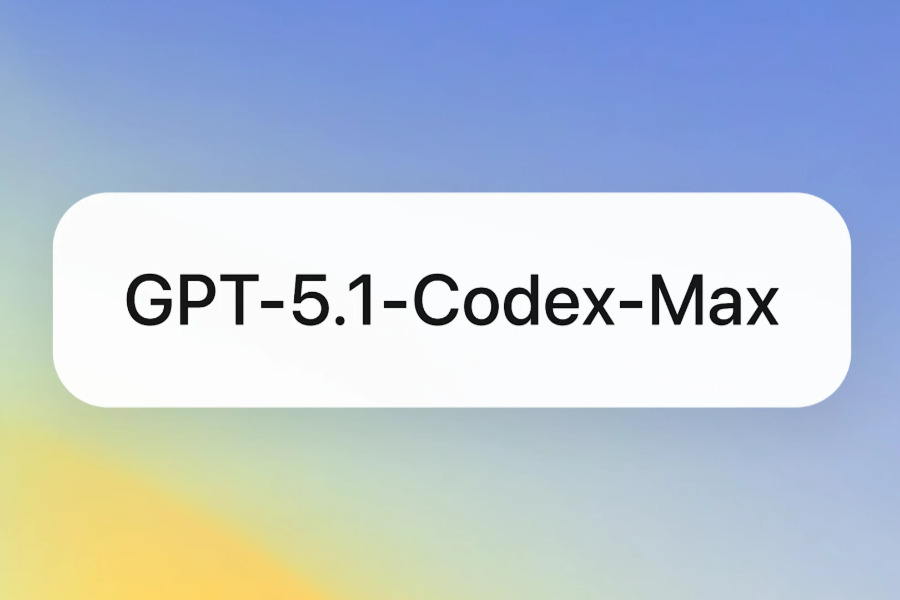In a significant industry development, Genspark AI has officially launched its new AI-powered browser, positioning it as the world’s first browser capable of running open-source AI models locally.
This innovative approach allows users to operate seamlessly without an internet connection, supporting up to 169 open-source models—including widely recognized ones like GPT-OSS and Gemma3—directly on their devices. The outcome is noticeably faster response times and a fully free user experience.
The launch signals a shift toward more personalized and private web interactions, leveraging local processing to reduce dependency on cloud-based services.
Keep reading, let’s delve into Genspark AI Browser’s features and implications.
Key Features of Genspark AI Browser
Genspark AI Browser incorporates several cutting-edge functionalities designed to improve everyday browsing and task automation:
- Super Agent Everywhere: Acting as an intelligent companion, this feature assists users across the web by instantly identifying better deals, comparing products, and analyzing reviews. Whether shopping on e-commerce platforms or researching services, a single click lets users access optimized options and make informed decisions efficiently.
- Autopilot Mode: This mode allows the browser to automate complex web activities. It can browse news feeds, collect data from diverse sources, access subscription-based databases, and complete multi-step tasks without manual intervention—ideal for users looking to save time on routine digital operations.
- Built-in MCP Store: With support for over 700 third-party tools and platforms—including Discord, GitHub, Notion, and Slack—the integrated MCP Store turns the browser into a centralized hub for workflow automation. Users can streamline their digital environments and sync tools without switching tabs or apps.
- Ad Block: Ensuring a clean and distraction-free experience, the browser automatically blocks pop-ups, banners, and intrusive advertisements. This not only enhances page loading speeds but also creates a more focused and enjoyable browsing session.
How to Access Genspark AI Browser

The Windows version of the Genspark AI Browser is currently available for download through the official Genspark AI website.
The company has indicated that versions for macOS and Linux are in development and expected to release in the coming months.
Who Is Genspark AI Browser For?
The browser appeals to a broad audience, including students, professionals, and enterprises:
- Researchers and Academics: It can automatically locate and download academic papers referenced on social media or news sites, simplifying literature reviews and data gathering.
- Business Professionals: Real-time price comparisons, competitor analysis, and market insights help optimize strategic decisions related to procurement and sales.
- Content Creators: By synthesizing information from the web, the browser aids in generating reports, presentations, and even podcast scripts with minimal effort.
Its combination of local AI processing and automation makes it suitable for both individual and organizational use, particularly where data privacy and offline functionality are prioritized.
Competition in the AI Browser Market
The AI browser segment has grown increasingly competitive. Earlier this year, Perplexity AI introduced Comet, while the Arc team released the Dia browser. Apple is also reportedly exploring native AI integrations within Safari.
Genspark differentiates itself with a full-agent architecture and emphasis on modular, extensible design. Rather than serving merely as a conventional browser, it aims to be an intelligent platform unifying information retrieval, processing, and automation.
Conclusion on the Genspark AI Browser
The introduction of the Genspark AI Browser represents a notable advancement in applying AI technology to web browsing. Its ability to operate open-source models locally offers a distinctive mix of speed, privacy, and user control—setting a new benchmark in the industry.
This launch underscores a broader movement toward intelligent, decentralized, and personalized browsing experiences, suggesting that the future of web navigation will be increasingly agent-driven and adaptable to user needs.
For more updates on AI tools and browser technology, stay tuned to our news section.



